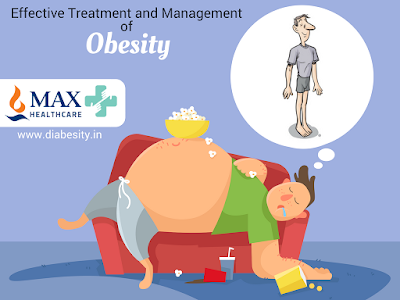The tendency to accumulate excessive body fat around the stomach and waist area or to put on excessive weight is a glaring symptom of unhealthy lifestyle. Giving into the consumer driven world of convenience where you don’t have to lift a muscle to get some work done. Just press a button a remote, seated in your couch and lo and behold, the job is done!!
But sometimes the outcome may not be a direct consequence of averseness to physical activity or due to overeating. Often the tendency to accumulate body fat may be a medical condition beyond the concerned individual’s control. In either case, the pronounced state of the above mentioned symptoms is referred to as a medical condition called obesity. For individuals suffering from obesity, it does not have any direct impact on health apart from making the affected extremely prone to putting on weight or fat and sometimes both. However it does give birth to series of related complications in the body.
Distinguishing Facts From Fiction – A Bariatric Surgeon’s Expert Speak
With every passing day, a close look at the rising nature and trend of disease and ailments, not just within the country but on a global scale, will reveal that while human beings have evolved to terminate susceptibility to virus and bacterial infection, the bubonic plague of this generation is mental health issues and overweight problems. While obesity constantly ever more on the rise, what with the growing popularity of synthetic fast food, it has surely reached a stage where it is no longer a question of ridicule for the person concerned but requiring serious medical attention for its ability to grow fatal. The greatest problem in tackling the issue of rising obesity is ignorance and lack of awareness amongst general masses regarding its medical implications. Bariatric surgery is a life saver for such people, suffering from obesity beyond their control, as it gives them a second chance and a fresh lease to start life on a healthy note with a clean slate to start all over again. However, ignorance and dearth of awareness regarding these lifesaving procedures, misconceptions about Lap sleeve gastrectomy, scepticism regarding Lap gastric bypass and Mini gastric bypass surgeries create an invisible barrier from people from pursuing them — all of which are permanent cures for effective weight loss and treatment of obesity.
Some general misconceptions doing the rounds regarding these bariatric procedures are discussed below. They are supplemented by facts, straight from the horse’s mouth, from none other than an expert and renowned bariatric surgeon with vast years of experience and success to their credit.
1. Misconception: Surgery for obesity is not customized. It doesn’t matter which surgery you go for treatment of obesity.
Fact: .
- An obese person suffering from severe diabetes would be advised to undergo a gastric bypass surgery, which reduces the size of the stomach and the small intestine is connected to this small stomach pouch so food reaches the intestine quickly, bypassing major part of stomach.
- For patients with BMIs up to 50, but not suffering from any additional implications apart from impaired activity and discomfort, sleeve gastrectomy is prescribed as it removes all but a banana sized portion of the stomach
- Mini anastamosis gastric bypass is usually chosen when BMI is beyond 50, a super obese or more without reflux on Endoscopy..
2. Misconception: Willpower plus good diet and exercise regimens work just as well as surgery.
Fact: For someone who is 50 pounds overweight and still in their teens, the above statement might still be applicable. While common perception associates overweight people with laziness, overeating and aversion to physical activity, obesity is an established medical condition which may lead to serious mental health complications such as depression. For such a person, no matter how little they eat or how much of physical activity they indulge in, piling on weight is beyond their control. Moreover an obese person is severely overweight with a BMI exceeding 50. For such a person, especially if they are out of their growing years, bariatric surgery is a boon as it allows them another shot at normal life like everyone else by cutting down any excess weight and inducing effective weight loss permanently.
3. Misconception: Surgery is a waste because you just regain the weight.
Fact: Research has unearthed statistical data which proves and establishes that bariatric surgery is a permanently effective procedure for weight loss and getting rid of associated diseases. However, it has to be understood, surgery is not a miracle. It is a second chance at normal life. Reverting to unhealthy lifestyle again for any person who has undergone bariatric surgery may start increase in weight and that is completely their individual prerogative and a singular case.
4. Misconception: Bariatric surgery is cosmetic, so it’s not covered by insurance.
Fact: Plastic surgery to change one’s appearance or botox sessions to improve the appearance of one’s skin can be labelled ideally as cosmetic procedures as they are not lifesaving procedures. However bariatric surgery although involves substantial weight loss, is more often than not a lifesaving procedure as it is the last resort for the affected individuals to get their life on track. Moreover its effects are not limited to external appearance. It relieves the concerned person of a lot of previous health problems and their normal body functions are expedited.
As a result most insurance companies follow the recommended guidelines for bariatric surgery to determine coverage. When obesity results in aggravated implications such as blood pressure and diabetes, it is only more likely that insurance will completely cover the treatment procedure.
5. Misconception: You will need plastic surgery after bariatric surgery.
Fact: This myth stems from the fact that common knowledge associates major knife scars to remove the excess weight from the concerned individual opting for bariatric surgery. Hence, in order to make amends to the natural contour of the body, plastic surgery in inevitable.
Whereas fact is, most weight loss surgeries involve laparoscopic procedures which comprise of minute or negligible incisions leaving none or almost minimal scars.
In addition, not every individual opting for bariatric surgery ends up with large amounts of excess skin, flapping around their stomachs as misconstrued by media and celluloid portrayals. In reality almost less than 10% people have to opt for skin reconstruction procedures post bariatric surgeries.
6. Misconception: You can be too heavy for bariatric surgery.
Fact: The fact that discussing measures to regain a normal life for those suffering from chronic obesity is a near possibility often makes it easier said than done. Like any other surgeries, bariatric surgery too is an extremely critical procedure requiring intense focus and subject matter expertise. It is generally all the more critical because of comorbidities existing in the patient which means that two or more diseases originating from obesity coexist simultaneously within their body. However taking in all the considerations and implications, bariatric surgery is always possible no matter how overweight you are. It is the existence of other complications in the body stemming from obesity that make bariatric surgery more risky than usual owing to its delicate borderline nature.
7. Misconception: Bariatric surgery isn't safe for older adults.
Fact: We have to understand surgery is not a divine miracle or an assured solution. Surgery is a medical procedure or an attempt to bridge the gap with a solution. Like all procedures, bariatric surgery too is an equally critical process and does not have any assured guarantees. Like weight and its implications have been discussed in the earlier point above, age too can be a factor influencing the choice and success of the procedure. However very rarely do people over the age of 80 opt for a bariatric procedure. Patients above 50 or 60 can easily opt for bariatric surgery with assured success and similar risk factors as someone younger. However age starts taking a toll when it has associated implications in the form of other health complications that need to be taken into consideration before operating upon.
8. Misconception: You still need to take insulin and blood pressure medication after surgery.
Fact: As a matter of fact, on the contrary, apart from reducing your weight, bariatric surgery also transforms the dynamics and mechanics of the new body.
After bypass surgery, 80 percent of patients with diabetes and 60 percent of patients with high blood pressure go into remission — and that means no more medication. Additionally, almost close to 70 percent suffering from sleep apnea previously, no longer required their CPAP machines at night after weight loss surgery. So that’s a remission rate of almost 3 people out of every four opting for surgery and that is a healthy assurance, if my opinion counts.
9. Misconception: Surgery is risky and has a long recovery time.
Fact: Morbid obesity is more likely to kill a person living with it lifelong, sooner than bariatric surgery ever will. So conversely, for most, the risk for bariatric surgery is low, but as a matter of fact, it may be more dangerous to not opt for surgery. The recovery period usually requires the patient to remain under observation for two days post op after which they can revert to normal life with dietary guidance.
10. Misconception: You can't get pregnant if you have this surgery.
Fact:As a matter of fact again, obesity is more likely to cause infertility in men or women and thereby impair or interfere with their ability to conceive. Bariatric surgery is a life saver and maybe a fresh lease of life for obese males or females looking to start a family. Hence losing weight is an important step forward towards having a baby.
However, it is advisable for patients to wait for a year before they plan to conceive just to keep it safe.
If you plan to have children, be sure to work with an ob/gyn who has expertise in this area.
The laparoscopic and bariatric surgery department in Max Super Specialty Hospital is headed by the best
bariatric surgeon in New Delhi,
Dr. Nikhil Agnihotri. You can get the best
gastric bypass surgery in New Delhi, India from him.
Visit Us :
diabesity.in
Mail Us : diabesity123@gmail.com
Book Your Appointment Here :
diabesity.in/book-appointment



























